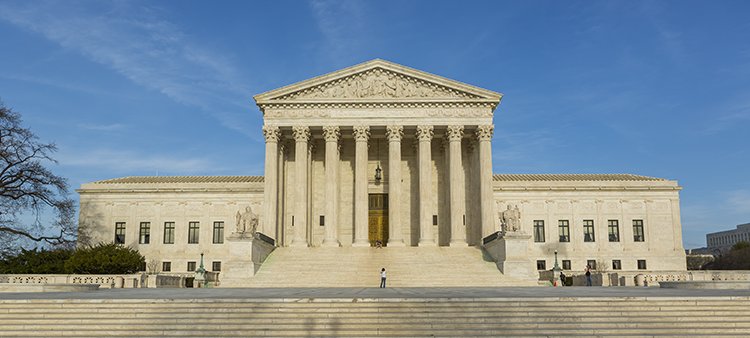
Most federal judges responding to survey express dissatisfaction with SCOTUS emergency docket decisions
Judiciary
Most federal judges responding to survey express dissatisfaction with SCOTUS emergency docket decisions

Dozens of federal judges responding to a survey by the New York Times are expressing concern about the U.S. Supreme Court’s emergency docket decisions in cases related to President Donald Trump since his second term in office. (Photo by Rob Crandall/Shutterstock)
Dozens of federal judges responding to a survey by the New York Times are expressing concern about the U.S. Supreme Court’s emergency docket decisions in cases related to President Donald Trump since his second term in office.
Only 12 out of 65 judges responding to the newspaper’s survey said the U.S. Supreme Court has made appropriate use of its emergency docket, and only 12 said lower-court judges are getting sufficient guidance on how to apply emergency docket orders.
And only two of 54 judges who answered the question said the emergency docket had improved the public’s perception of the judiciary.
Some judges were critical in interviews with the New York Times, calling the emergency docket orders “mystical,” “overly blunt,” “incredibly demoralizing” and “a slap in the face to the district courts.” One viewed their district’s relationship with the Supreme Court as a “war zone,” and another thought that courts were in a “judicial crisis.” The judges spoke on the condition of anonymity.
Taking a more positive view, a Trump appointee said the emergency orders were “flushing out anti-democratic rulings.”
Also defending the Supreme Court is Judge J. Harvie Wilkinson III of the 4th U.S. Circuit Court of Appeals at Richmond, Virginia, who told the New York Times that the Supreme Court was reacting to a large number of emergency challenges related to the Trump presidency.
But, he added, “You don’t want too many snap judgments and emergency orders creating a public impression of either secretiveness or arbitrariness.”
The judges’ answers reveal how much litigation over Trump’s agenda “has created strains in the federal judicial system,” the New York Times article says.
More specifically, the survey findings revealed:
• Twelve out of 65 judges agreed with this statement: “The Supreme Court has made appropriate use of the emergency docket since President Trump returned to office.” Forty-seven disagreed, and six were neutral.
• Twelve out of 65 judges agreed with this statement: “Lower-court judges have sufficient guidance from the Supreme Court about how to apply emergency docket orders.” Forty-eight judges disagreed, and five were neutral.
• Asked what effect the emergency docket had on the public’s perception of the judiciary since Trump returned took office, 42 “said caused harm,” 10 “said no effect,” and two “said an improvement.”
The newspaper sent the survey questionnaire to more than 400 federal district and appeals judges, including judges in districts that have handled at least one major legal challenge to Trump administration policies. Among the judges who responded, 28 were nominees of Republican presidents, and 37 were nominees of Democratic presidents.
At least seven out of about 20 emergency orders regarding Trump administration policies did not include reasonings. Nearly all the rulings have benefited Trump, the newspaper says.
“While the orders are technically temporary,” the New York Times says, “they have had broad practical effects, allowing the administration to deport tens of thousands of people, discharge transgender military service members, fire thousands of government workers and slash federal spending.”
The New York Times acknowledges that the judges who responded may not be representative of the entire judiciary.
“But to have even several dozen judges out of the nation’s more than 1,000 district, appellate and senior judges express such concern about the Supreme Court’s behavior is highly unusual,” the New York Times says.
The Volokh Conspiracy published a critique of the New York Times survey here.
Among its points: The judges most likely to respond may be those who are most unhappy with the Supreme Court. And litigants who file challenges to Trump administration polices choose districts they expect to be sympathetic, so including judges from those districts in the survey may be oversampling judges most likely to disagree with emergency docket rulings for Trump.
See also:
Emergency docket orders should ‘inform’ courts in similar cases, SCOTUS says
Chief justice’s legacy, emergency docket, president’s power likely themes of new SCOTUS term
Write a letter to the editor, share a story tip or update, or report an error.







